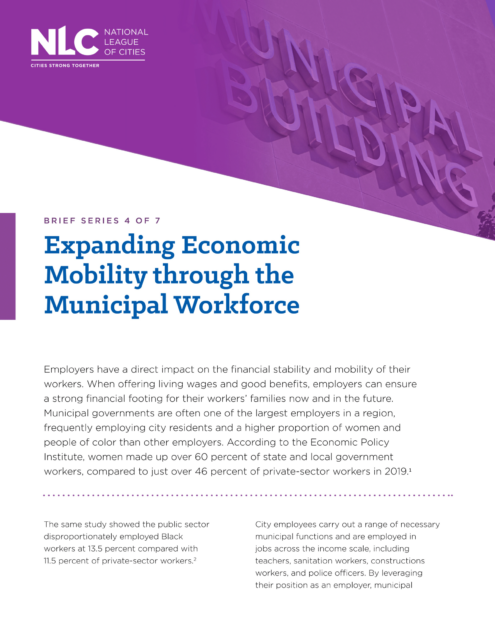Employers have a direct impact on the financial stability and mobility of their workers. When offering living wages and good benefits, employers can ensure a strong financial footing for their workers’ families now and in the future. Municipal governments are often one of the largest employers in a region, frequently employing city residents and a higher proportion of women and people of color than other employers. City employees carry out a range of necessary municipal functions and are employed in jobs across the income scale, including teachers, sanitation workers, construction workers, and police officers.
By leveraging their position as an employer, municipal governments through their workforce can begin to increase economic mobility for residents. Cities can assess their wage and benefits policies to uncover any inequities across job categories and ensure that all employees are paid a living wage, receive competitive benefits and have access to opportunities that can financially stabilize households – serving as a model for other employers in the region and boosting economic security for a more significant proportion of families within their jurisdiction. This brief details a plan for expanding economic mobility and discusses what some cities are already doing toward this goal.
Brief topics include:
- Strategic recruitment
- Living wages for city employees
- Comprehensive benefits to meet employee needs
- Expanding access to child care
- Increasing access to and utilization of financial products
- City as a model employer and contractor
Learn more about taking action to expand economic mobility for your residents and visit Equitable Economic Mobility Initiative.







